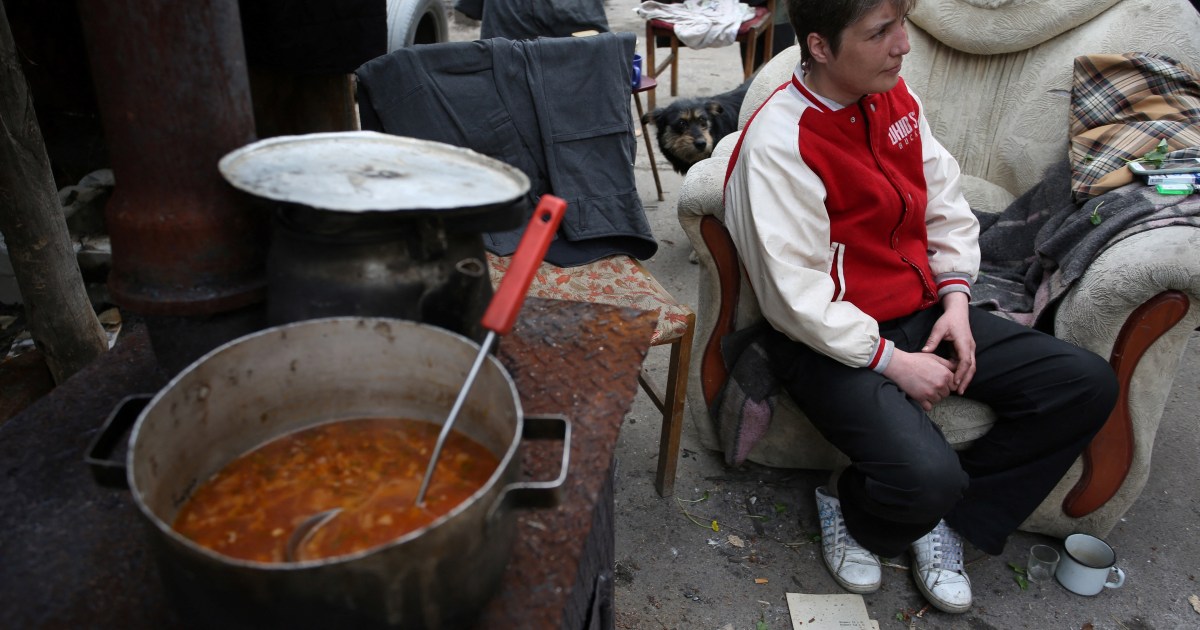Ukrainian borshch soup culture added to UNESCO heritage list
Kyiv hails the move, saying Ukraine has won the ‘borshch war’, while a Russian official slams ‘xenophobia’.
The United Nations cultural agency (UNESCO) has inscribed the culture of cooking borshch soup in Ukraine on its list of endangered cultural heritage.
UNESCO made the announcement on Friday, saying the decision was made by a committee in a fast-tracked process – “as a matter of extreme urgency” – prompted by Russia’s invasion of Ukraine and the “negative impact on this tradition” caused by the war.
On Twitter, the agency said the process of cooking borshch soup has been “threatened by the fragmentation of communities due to war but is a symbol of hope for them”.
Ukraine considers borshch – a thick nourishing soup usually made with beetroot – as a national dish. The soup is also widely consumed in Russia and other Eastern European countries where it is known as borscht.
Kyiv hailed the move, with Ukraine’s culture minister Oleksandr Tkachenko saying on Telegram that “victory in the borshch war is ours”.
Ukraine “will win both in the war of borshch and in this war”, he said.
The addition of practices and cultures to the UNESCO list aims at mobilising attention to ensure they are preserved despite risks to their existence.
This is the first time since the Convention for the Safeguarding of the Intangible Cultural Heritage was adopted in 2003 that an element of #IntangibleHeritage has been inscribed for safeguarding as a matter of extreme urgency. pic.twitter.com/61LdgMv0ER
— UNESCO 🏛️ #Education #Sciences #Culture 🇺🇳😷 (@UNESCO) July 1, 2022
The UNESCO committee noted that the war had “threatened the viability” of the soup culture in Ukraine.
“The displacement of people (poses a threat) … as people are unable not only to cook or grow local vegetables for borshch, but also to come together … which undermines the social and cultural well-being of communities,” UNESCO said.
Russian foreign ministry spokeswoman Maria Zakharova slammed the move as a bid to make it belong to “one nationality”.
“This is xenophobia,” she said.
But UNESCO said that Ukrainian borshch was essential to daily life in the country.
“Ukrainian borshch – the national version of borscht consumed in several countries of the region – is an integral part of Ukrainian family and community life,” it said.
The Representative List was first launched in 2008. In its 2003 convention, UNESCO defines the list’s purpose as “to ensure greater visibility” and to “increase awareness” of the significance of nominated elements as representatives of intangible cultural heritage. Some of the well-known elements on the list include Chinese Shadow Puppetry, French Gastronomic Meals and South Korean Kimchi.
Russia invaded Ukraine on February 24, beginning a war that has so far killed thousands of troops and hundreds of Ukrainian civilians and fuelled a European refugee crisis.




